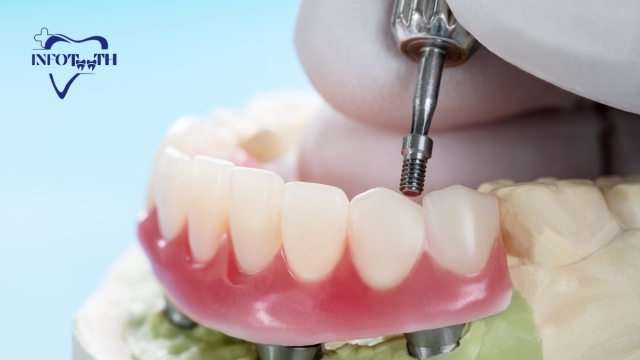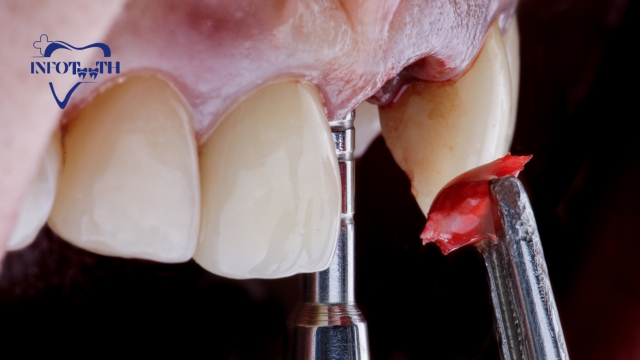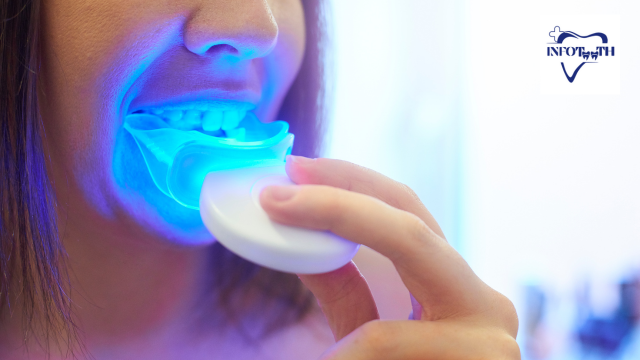Do you find that having missing teeth affects your oral health and confidence? Full arch teeth replacement provides a comprehensive way to improve your smile and quality of life. We’ll dive into the world of full arch teeth replacement in this blog, reviewing its many alternatives, advantages, drawbacks, and considerations. Knowing the procedure is essential whether you’re considering traditional dentures, All-on-4 implants, or dental implants. Prepare to set out on a journey to a happier, more self-assured smile!
Table of Contents
What Are The Causes of Full Arch Teeth Replacement?
Full arch tooth replacements can result from a variety of dental problems as well as lifestyle choices. To understand why people might need to have their entire set of teeth replaced, it is important to understand these causes.
Severe Tooth Decay: If cavities and decay are not treated, they can cause teeth to become irreversibly damaged, which means that teeth must be extracted and replaced with prosthetics.
Gum Disease (Periodontitis): Severe gum disease can cause the surrounding bone and tissue to deteriorate. Teeth may become loose and eventually need to be extracted as the condition worsens.

Traumatic Injuries: Sports injuries, accidents, and other oral traumas can seriously harm teeth, necessitating a complete arch replacement or tooth loss.
Genetic Factors: Some people may be more susceptible to dental disorders that affect tooth development or structural abnormalities, which raise the risk of tooth loss.
Poor Oral Hygiene: Tooth decay and gum disease can be caused by plaque and tartar accumulation, which can be facilitated by infrequent brushing and flossing.
Bruxism, or teeth grinding: If left untreated, chronic teeth grinding can weaken teeth, erode enamel, and ultimately result in tooth loss.
Smoking and Tobacco Use: Smoking increases the risk of tooth decay, gum disease, and tooth loss. It also has a major negative influence on oral health.
Medical Conditions: Diabetes and autoimmune disorders are two examples of systemic illnesses that can harm oral health and accelerate tooth loss.
Inadequate Nutrient Intake: A diet deficient in vital nutrients can weaken teeth and gums, increasing their vulnerability to disease and decay.
Aging: The natural deterioration of teeth and gums with age can lead to tooth loss and necessitate complete arch replacement.
Full Arch Dental Implants Procedure
Full arch teeth replacement provide a cutting-edge option for those who want to replace a whole arch of lost or badly damaged teeth. To restore functionality and aesthetics, this procedure entails placing dental implants strategically positioned to support a full set of prosthetic teeth.

A comprehensive consultation and evaluation by a licensed dental practitioner mark the start of the procedure. In this first stage, the dentist assesses the patient’s overall suitability for dental implant placement, as well as their oral health and bone density. Advanced imaging methods, like CT scans or panoramic X-rays, can be used to plan implant placement and precisely evaluate the mandible’s structure.
Following the completion of the treatment plan, the surgical phase starts. The dentist surgically inserts titanium implant posts into the mandible at precisely the locations decided upon during the planning stage while under local anesthesia or sedation. These implants act as artificial tooth roots and give the prosthetic teeth a strong foundation.
Patients can sometimes leave the dentist’s office with functioning teeth. At the same time, they wait for the final restoration because temporary prosthetics can sometimes be fastened to the implants right away after surgery. In other cases, on the other hand, osseointegration—the process by which the implants fuse with the surrounding bone—needs a few months of healing time.
Creating and installing permanent prosthetic teeth is the last stage once the implants have been fully integrated. The patient’s smile will look more realistic and long-lasting thanks to these expertly made restorations that are matched precisely in color, shape, and function to the patient’s natural teeth.
Before And After Full Arch Dental Implants
Before and after full arch teeth replacement provide a life-changing experience for people looking to improve the function of their mouth and smile. People who are missing teeth frequently struggle with things like confidently smiling, speaking, and chewing before having the procedure. A lower quality of life, facial sagging, and bone loss can also result from tooth loss. Due to their dental condition, many people may feel embarrassed or self-conscious, which can negatively affect their general well-being and social interactions.

However, patients report significantly improved quality of life and oral health following full arch dental implant surgery. Once all of their teeth are firmly rooted in their jawbone, they are able to speak clearly and chew a wide range of foods with ease. Furthermore, improved self-esteem and social confidence are linked to the aesthetic restoration of a full smile.
Beyond just the physical changes, patients frequently report feeling more confident and energetic again. They are no longer embarrassed by their dental condition and no longer feel the need to cover their smile or stay away from social events. Rather, they greet life with fresh zest, relishing pastimes like eating with friends, giggling uncontrollably, and grinning unabashedly for pictures.
What Are The Types of Full Arch Dental Implants?
Various types are available for full arch teeth replacement, each with specific benefits and things to keep in mind. These are a few of the most typical kinds:
Conventional Dental Implants: Titanium posts are surgically inserted right into the mandible with these implants. The implants offer a strong base for the attachment of replacement teeth after undergoing osseointegration, which allows them to fuse with the bone. Traditional dental implants provide excellent long-term success rates, stability, and durability.
All-on-4 Implants: This ground-breaking method of replacing an entire arch’s worth of teeth is called All-on-4 implants. It entails securing a whole dental arch to just four well-placed implants. Compared to conventional methods, this minimally invasive procedure requires fewer implants and shorter treatment times, allowing for immediate function and aesthetic restoration.
All-on-6 Implants: All-on-6 implants, comparable to the All-on-4 method, use six rather than four to support an entire dental arch. Because this method offers more support and stability, it is appropriate for patients who have low bone density or who want to live longer and be more durable.
Implant-Supported Dentures: These dentures offer the convenience of removable dentures and the stability of dental implants. These dentures do not slip or cause discomfort like traditional ones because they are firmly fastened to implants using ball attachments or bars. Improved speech clarity, comfort level, and chewing efficiency benefit implant-supported dentures.
Zygomatic Implants: Zygomatic implants offer an alternative for patients whose upper jaw bone is inadequate. These implants are placed into the zygomatic bone of the cheek rather than the jawbone, giving prosthetic teeth a secure base to attach to. For people who might not be good candidates for traditional implants because of bone loss or anatomical constraints, zygomatic implants provide a workable alternative.

The choice of full arch teeth replacement is based on several factors, including the patient’s preferences, treatment goals, bone density, and oral health. Each type of implant has pros and cons of its own. Speaking with a licensed dental practitioner is crucial to determine which option best fits each person’s needs and situation.
How Many Arches Are In Dentures?
When it comes to dentures, arches are essential to creating teeth replacements that function well. When talking about full arch teeth replacement, it’s important to comprehend the role arches play in denture design. Dentures are usually classified according to how many arches they cover. A full set of dentures covers the upper and lower dental arches for full arch teeth replacement, resulting in a thorough mouth restoration.
To restore oral function and aesthetics, these full arch dentures are made to fit over the gums securely and comfortably. Full arch dentures covering the upper and lower arches guarantee a balanced and harmonious smile, boosting self-esteem and improving the quality of life for those losing teeth. Whole arch dentures provide a dependable way to restore the integrity and beauty of a complete smile, regardless of the cause—aging, trauma, or oral health problems.
Benefits of Full Arch Teeth Replacement
Beyond repairing a person’s smile, full arch teeth replacement has many advantages. The following are some of the main benefits:
Better Oral Health: Replacing an entire arch of teeth helps stop additional dental issues brought on by tooth loss. Bridging the spaces keeps the jawbone dense and stops bone loss, which lowers the risk of gum disease and teeth shifting.
Enhanced Aesthetics: A full set of teeth enhances the overall appearance and contours of the face and restoring facial symmetry. People feel more confident and at ease in social situations when their smile is restored.
Restored Function: Restoring oral function is one of the main advantages of full arch teeth replacement. A complete set of teeth can benefit a person’s comfort during eating, speaking, and smiling, as well as their ability to chew and speak clearly.
Enhanced Self-Confidence: Losing teeth can hurt confidence and self-worth. Because a full arch teeth replacement results in a smile that looks and feels like real teeth, it can dramatically increase self-confidence.
Improved Quality of Life: Complete arch teeth replacement improves overall quality of life, going beyond appearance and functionality. It enables people to speak clearly and confidently, smile freely and without shame, and enjoy a varied diet without limitations.
Full arch teeth replacement improves oral health, functionality, and general well-being. It improves smile appearance, enabling people to enjoy life fully.

Conclusion
In conclusion, full arch teeth replacement offers a revolutionary solution for people who want to restore their confidence, smile, and oral function. Restoring a whole arch of teeth enhances appearance and restores functionality. It improves oral health, whether done with dental implants, All-on-4 implants, or conventional dentures. People can start their journey toward a brighter, more vibrant smile by making educated decisions by considering the advantages, risks, and aftercare involved.
FAQs
Q: How long does it take to replace all the teeth in an arch?
A: The full arch teeth replacement process can take a variety of lengths of time based on the patient’s oral health, the intricacy of the case, and the treatment option selected. Certain procedures can be finished in a single visit. Still, for best results, others might need to be done over several months in multiple visits.
Q: What is the course of recovery following surgery to replace an entire arch’s worth of teeth?
A: Patients should anticipate some swelling, discomfort, and temporary dietary restrictions following full arch teeth replacement surgery. Still, these symptoms usually go away in a few days or weeks. It’s critical to adhere to the dental team’s post-operative care instructions and schedule follow-up appointments to receive monitoring and adjustments.
Q: Are there any age limitations on replacing an entire arch of teeth?
A: Generally speaking, full arch teeth replacement is appropriate for people of all ages who have experienced severe dental problems or have lost many teeth. On the other hand, age-related variables like bone density and general health may affect which treatments are appropriate. The best course of action for each patient can only be determined after a comprehensive examination by a licensed dental practitioner.
Q: What are the advantages of replacing an entire arch’s teeth with dental implants?
A: When replacing an entire arch of teeth, dental implants have several benefits, such as improved stability, longevity, and aesthetics. Unlike traditional dentures, implants integrate with the jawbone, giving artificial teeth a solid base and halting bone loss. Implants can also enhance speech clarity, chewing ability, and general oral function, resulting in a more comfortable and aesthetic smile.
Q: What is the cost of replacing all of the teeth in an arch?
A: The cost of replacing an entire arch of teeth can vary based on several variables, including the treatment plan selected, the number of implants needed, the case’s complexity, and the dentist’s location. Dental implants offer durability and long-term benefits, even though they are typically more expensive initially than traditional dentures. To help patients afford and obtain full arch teeth replacement, many dental offices provide financing options, payment plans, and help with insurance claims

